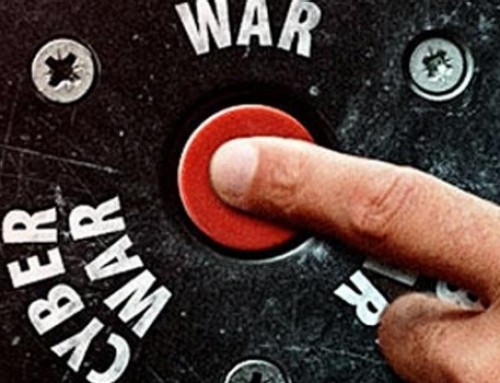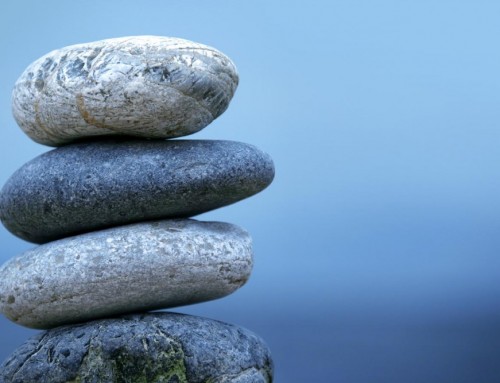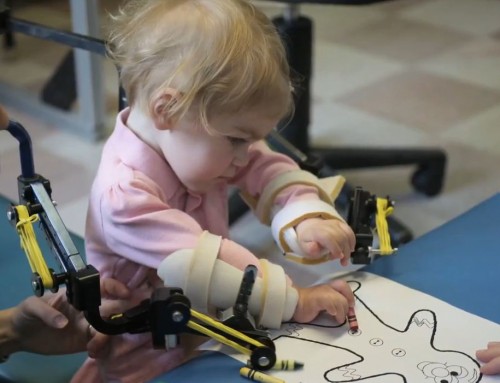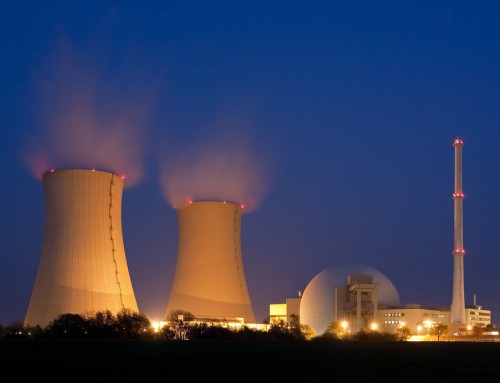Do we want the world to end? Our first reaction to this statement screams an emphatic, “NO!”. But perhaps the world is not so bifurcated and questions like these are not so simple. Or even more strange, this question might just stem from the very real and penetrating bifurcation of existence: life and death, beginning and end, good and evil. These are the themes of our universe and we are constantly in fear and wonder of their encompassing truth. Never does a human feel more alive than in free-fall; when the fragility of existence is exposed and the ground is inevitably approaching. The end is coming, but probably not soon and definitely not when an over-hyped ancient, stargazing culture predicted it. However, by sheer dumb luck and inevitability, some bold soul’s prediction will one day come true. Consequently, the apocalyptic obsession ensues and here at DEEPS we thought it important to address the motivation behind the phenomenon.
This post was inspired by this video from Idea Center.
—————————————————————————————–
BRETT:
I would like to think that no one in the world would seriously want to see all of humanity wiped out, but, for a deranged few, that might not be the case. However, most of us sane people do not have a desire for a catastrophic anihilation or a sadistic longing for the destruction of modern society. At the very worst, humanity has a healthy curiosity, which might actually spawn some preparation and conservation. But at the core of this question is the human motivation for significance and longing for purpose. There is some driving force in the heart of man that pushes him towards something more. This driving force has tugged at the heart of man to convince our society that we are living in some important time. Perhaps it is this desire to be apart of a meaningful time period that causes society to have this strange obsession with the apocalypse. Or perhaps, the intrigue of the apocalypse stems from a sense of adventure or longing for a challenge. It seems that these people long to be tested and to push the limits of human perseverance.
—————————————————————————————–
RYAN:
The end of the world is a terrifying, yet powerfully majestic concept that all have considered, but few have dwelled on. Digging into the reality of the end of existence as we know it often reveals some uncomfortable truths about our present.
At the end of the day, your perception of the end is all determined by one thing…your perception of the beginning. If you believe that this world was put together as a miraculous expression of chance, its dissolution in an equally random and rapid fashion would seem fitting. Belief in a higher entity or a greater cause means the apocalypse would be much more than an unfortunate inevitability, it would be a turning point in the chapter of Earth and the evolution of man.
I would agree that all humans seek to be a part of something bigger, historically speaking. But I cannot agree with the statement that we would welcome the end of times because of the challenge it would present or because it would in some way make us significant. If the world is ending, historical importance ceases to exist. Without a future generation, our demise won’t be romanticized, it will be irrelevant.
I think the intrigue would be in finally understanding more about where we came from. So many questions about our origins, morality, purpose and meaning could be answered by the end times. These mysteries give the apocalypse an additional weight, it may answer once and for all the questions that science has for years been unable to solve.
—————————————————————————————–
BRETT:
The apocalypse is a term that has been used to address a myriad of scenarios. These scenarios have ranged from the complete annihilation of our planet (possibly from a supernova or cosmic collision), to simply a world that is far from recognizable but humanity clings onto existence in some harsh environment (such as a zombie apocalypse or post nuclear war fallout). Depending where on this range the apocalypse would fall would make all the difference in people’s perception. A nuclear fallout, zombie apocalypse, or global war might be seen as a challenge for those who survive and emerge on the other side; a new world that the few survivors can forge for themselves in the ashes of a lost world. Perhaps that world would be a living hell, and surely these people would rather not have the destruction and horrific loss, but it is the challenge of persevering that allures the adventurers of our times. With this challenge also comes a renewed earth and a cleaned slate. A near-extinction apocalypse would wipe away any credit you had, any possessions you owned, any social status you gained, and any government that ruled over you. Even the borders of our nations would mean nothing to us as we saw the earth as simply land and sea, mountains and valleys; the only borders are those laid down by mother earth. Do people desire this near-extinction apocalypse to once again return to their primitive roots and see the world as a place to live and roam rather than being enslaved by their daily routine? Perhaps, but perhaps those people do not need a apocalypse to have that world.
Clearly if the entire human race is wiped out then there is no historical significance, but what is a challenge without a chance of failure? Why does a challenge have to only make sense to people if there is a guarantee that it will be remembered? I do not see this correlation, and whenever I face a challenge it is not solely because I wish for it to be romanticized and looked fondly on by later generations. People face challenges to test their strength and to determine just what they are capable of persevering. Even a asteroid impact can now be avoided by humanity, a few brave humans have even left our planet for another celestial body. What could we do if we were really put to the test? Could we recolonize a different planet? Could we push a asteroid out of our way? Could we even come up with the antidote for zombification? There is nothing more persistently awe-inspiring than the human spirit and the challenge of an approaching apocalypse would surely evoke its global reach. For the apocalypse junkie, the end is only the beginning and the challenge is the reward but catastrophe could be the cost.
—————————————————————————————–
RYAN:
Let me break down these scenarios into “groupings” so that we can digest them objectively. No argument that the nature of the apocalypse will undoubtedly change people’s perception of the end times. I will talk more about your “challenge” theory in a later point but let me first clarify what I meant in my last entry.
1) If the apocalypse is brought about by a random act of nature (whether it be an asteroid, chemical or biological pandemic or natural disaster), all of the questions you presented are both valid and crucial. This scenario is particularly enticing, as the elimination of order and social constructs would effectively turn life into a survival video game. But how fun would a video game be if the first time you got into a dicey situation and died, the game shut off and you could never play it again? “The challenge of persevering allures the adventurers of our times” is a cute catchphrase, but my guess is very few adventurers would be keen to play that game for long.
Natural causes apocalypse verdict: Possibly desired by CrossFit champions, Marines and POWs
2) For argument’s sake, lets say a religious event such as the Christian rapture triggers the beginning of the end. For those unfamiliar, many Christians believe God’s followers will be taken to heaven before the world’s final judgement begins. Would that not render most of those questions irrelevant? Would the future of civilization not then hinge on satisfying whatever penance needed to be paid to reach the greater Utopia? If we apply this logic to all similar religious apocalyptic scenarios, the consensus is the same: the only supporters would be those who hold to the beliefs of the proven religion.
Religious apocalypse verdict: Desired only by the followers of the one, true religion
3) If nuclear capabilities continues to develop and international tensions bring us to a place of full-fledged global nuclear war, I guarantee you the portion of our population excited for a “renewed earth and a clean slate” would quickly reneg these sentiments. Let us not romanticize a post-nuclear fallout world. Movies and books have given us a fantastical vision of a fictitious glory that comes from preserving the human race. These Hollywood apocalyptic portrayals are often accompanied by lush overgrowth, breathtaking shadowed skylines and a constant pulse of supernatural hope, no matter how dismal the situation.
I can assure you the people who lived through the tragedy of the atom bombings in Nagasaki and Hiroshima share this view of a nuclear fallout. If you survive, all of your loved ones, all of your friends are probably dead. Your body would be slowly and continually mangled thanks to exposure to the radioactive elements. Life would no longer be a collective effort to sustain humanity, it would be a world full of charred, skeptical humans seeking to fruitlessly survive another day.
Nuclear fallout / World War “X” verdict: Realistically desired by nobody
We can’t predict the nature of Earth’s apocalypse. We can’t assign an unknown event a binary good or bad. If the world is ending, I’m giving it VERY little chance to present itself in a way that gives the human race an exciting challenge.
Planet relocation? Interesting to speculate but at this point I’m not offering that as a potential alternative to the apocalypse. Too much of a stretch.
———————————————————————-
BRETT:
This response will aim to counter the rebuttal to my argument and then propose the core question behind the debate. The assessment of my initial analysis misrepresented a few key points. This could be due to an actual misunderstanding of my argument or perhaps from a genuine difference in perspective. Hopefully this will clear up some of the rhetorical clutter obstructing the view of each opposing camp. I would say that the main misunderstanding is in the difference between a realistic desire for the death and destruction of humanity and the intriguing allure of a apocalypse. My argument simply aims to seek the core aspects of humanity that bring about a obsession with the apocalypse.
Natural Disaster
1.) In the event of a natural disaster that threatens the extermination of man, it would surely be a one round fight. My argument is not that this scenario would be preferred by humanity, simply that it has a unique allure. There would be no second chances. And yes, unlike a video game, real life is finite. We all live once and then die, yet many people still risk their lives every day. That mortality brings both the fear of a permanent death but also the beauty of a preciously fragile existence. To quote the mythical Achilles played by Brad Pitt:
“‘ll tell you a secret. Something they don’t teach you in your temple. The Gods envy us. They envy us because we’re mortal, because any moment might be our last. Everything is more beautiful because we’re doomed. You will never be lovelier than you are now. We will never be here again.”
Our finite lives hold with them a significance. Even if all we do is forgotten or if there are no gods, we still are a preciously rare thing. And the beautiful fragility of the human race will never be more apparent than in the face of a natural disaster threatening to wipe out every trace of our existence. This will inspire those who beat back the destructive power of nature and tell the cosmos that while we might one day be destroyed, it will not be quite yet. It is that challenge of preserving a fragile existence that appeals to man. It is only made more significant because there are no second chances.
Natural Disaster Verdict: Preferred by only a deranged few, met with determination by an inspired human race fighting for their lives, intriguing to everyone, clearly romanticized
Religious Apocalypse
2.) The intrigue of a religious apocalypse is that it will answer the biggest question of them all: “Why are we here?” This question will most likely be answered as other questions are answered like: “Is there a God?” and “Which religion is correct, if any?”
In this case, the apocalypse actually would bring certainty instead of a fear of the unknown. Certainly I would agree that this situation would only be desired by the followers with the one true religion. Although, everyone thinks they know the one true religion…
Religious Apocalypse Verdict:
Durring the build up: Desired by every devout follower of any religion.
After the outcome: an extremely stoaked few, tons of disappointed people who gave up a large portion of their weekends for nothing, and probably one extremely foolish feeling Tom Cruise who ate his child’s umbilical chord…(oh, he didn’t actually follow through with it?…ok, well it’s still creepy he thought about it)
Nuclear Fallout/ World War X:
3.) I will admit that the majority of people would hate a post nuclear fallout world. I will also admit that the reason there is any allure at all is due to the romanticization of a incredibly brutal and tragic event. But isn’t that the point? The fact that this romanticization exists is what is interesting. The question of why we would romanticize something so bleak is what reveals so much about the human race. Perhaps it reveals a ignorance or a foolishness. Or perhaps, it reveals our roots; some defining quality that is unique to man. Is it a will to overcome, a desire for significance, or a hunger for a challenge? At their core, these questions are not about the apocalypse; these questions are about us. And at their very core, these questions are larger questions like: “who are we?” and “what is this thing called life?”
Nuclear Fallout/ World War X Verdict: Of course it’s romanticized but what does that say about us?






Leave A Comment